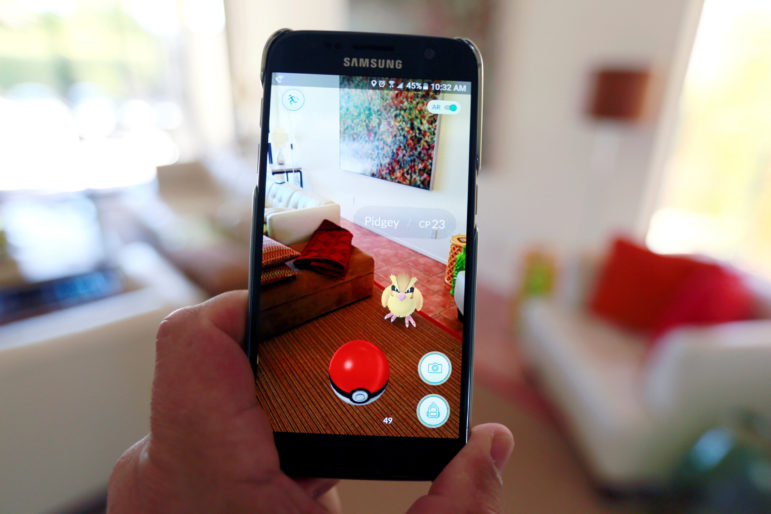(RNS) I had thought that the last time I would ever hear about Pokemon was when my younger son turned 9 years old.
I was wrong.
As anyone who has been paying attention knows, Pokemon is back — in the form of “Pokemon Go.” In the old Pokemon, players collected sweet, little characters. “Pokemon Go” steps it up one notch. It encourages users to “leave” Pokemon characters in the various places that they visit, so that other players can find them and collect them.
By the way, that younger son, 15 years later, is busy looking for Pokemon all over Washington, D.C. As Bob Dylan sang: “May you stay forever young.”
“Pokemon Go” has become such a cultural phenomenon that Florida highways (and perhaps elsewhere) have had to “upgrade” their no-texting alerts. There are now signs proclaiming that it is both unsafe and illegal to search for Pokemon while driving.
Seriously — thanks for the heads-up on that.
In a summer punctuated by terror and mass death, the “Pokemon Go” phenomenon is actually a sweet societal diversion.
And, yes — Pokemon have been showing up in Jewish places.
Except — not everyone is pleased with the places that Pokemon have appeared. For example, Auschwitz has asked to be a Pokemon-free zone. So has the United States Holocaust Memorial Museum and the Arlington National Cemetery.
Pokemon have showed up at the Kotel, the Western Wall in Jerusalem, Judaism’s holiest site. (Snark alert: Virtual critters can be at the Wall, but men and women can’t pray there together?) I’m sure some of my colleagues are devoting the remainder of their summers to figuring out how to leave Pokemon around their synagogues so that kids will find them.
And so, thank you, “Pokemon Go.” You have reminded us about a subject that we would rather avoid.
It’s called the holy.
Here is the paradox. America is, arguably, the most “religious” country in the industrialized world, at least, when it comes to church attendance. (Synagogue attendance is an entirely different matter.)
But, even with our nation’s heralded religiosity, when it comes to the subject of the holy, we are more than a little tongue-tied. Our culture doesn’t like to discuss the holy, for fear that talk of the holy will migrate into being “holier than thou.”
We seem to lack holy days (contrast this to Israel, where many cities descend into sacred silence on the Jewish Sabbath). And we certainly have lost sense of the sanctity of place, wherein certain spaces are filled with the magical, the sublime, the transcendent — the holy.
There are places that are so serious, so powerful, so exalted, so touched by eternity that they simply cannot give entry passes to the trivial and the time-bound.
Paradoxically, the conversation about places where “Pokemon Go” should not go is actually a conversation about the places where God should go.
Like all fads, the “Pokemon Go” fad will fade. But I would like to imagine a new way of understanding the “Pokemon Go” phenomenon.
Instead of searching for invented creatures, let us imagine that there are images of God, and acts of altruism, scattered all over the world.
There is no app that will help you find them.
The only thing that will do that — is your own soul.
(Rabbi Jeffrey K. Salkin is the spiritual leader of Temple Solel in Hollywood, Fla., and writes the Martini Judaism column for RNS)






